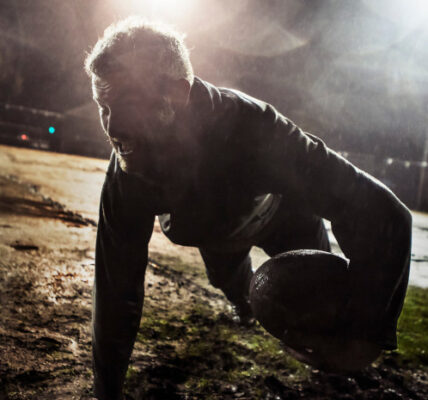Between the high-octane glamour of professional rugby and the global buzz of international tours, the Murray Cup stands firm like a seasoned tighthead prop, steady, respected, and impossible to ignore. First contested in 1890, the Murray Cup is one of South Africa’s oldest knockout rugby competitions, and proudly so. While others chase headlines, this tournament chases history, offering a rare blend of old-school grit and grassroots passion that’s all too rare in the modern era.
What makes the Murray Cup special isn’t just its age, it’s the stories that unfold each season. Clubs like College Rovers, Durban Collegians, and Varsity College have etched their names into the cup’s legacy, but it’s also the smaller, lesser-known teams that bring charm and unpredictability to the tournament. Every try scored and whistle blown is part of a heritage that binds the rugby community across generations.
The Murray Cup is a cultural fixture in KwaZulu-Natal’s rugby landscape. It’s where former players return to coach, where parents volunteer behind the braai stand, and where kids dream of making their mark just like their local heroes. It serves as a bridge between past and present, a living museum of community spirit, competitive spirit, and sporting joy. In a world where rugby is becoming more commercial, the Murray Cup remains refreshingly human.
A Historic Legacy Rooted in Heritage
The Murray Cup is a cornerstone of KwaZulu-Natal’s rugby calendar and one of the most enduring trophies in South African sport. Named in honour of Sir Thomas Murray, a prominent patron of Natal rugby, the cup was intended to create a spirited and competitive environment that would promote club rugby across the province. More than 130 years later, that original vision still holds true.
Unlike many modern competitions, the Murray Cup has weathered wars, economic depressions, political upheaval, and the global shift to professionalism, yet it continues to command prestige and respect. Its survival is testament to the resilience of club rugby in KZN and the efforts of administrators and volunteers who have safeguarded its relevance through decades of social change.
The Murray Cup follows a knockout format, a structure that amplifies intensity and breeds underdog stories. For smaller clubs, the competition is often a rare opportunity to test themselves against more established sides and make a statement on a provincial stage. For the big clubs, it is a chance to solidify legacy and add silverware to an already proud history.
Traditional heavyweights like College Rovers, Durban Collegians, and Varsity College have dominated over the years, but the Murray Cup’s appeal lies in its unpredictability. Every season brings the potential for an upset, a moment of glory for a club that may not enjoy the same spotlight as the perennial contenders. These matches are played with intensity that transcends the game. For players, winning the Murray Cup is not just about personal achievement, it is about honouring the jersey, the club, and the community they represent.
Perhaps the Murray Cup’s greatest strength is its deep roots in the community. In a time when elite rugby often feels removed from its base, the Murray Cup grounds the game in its most authentic form. Families, former players, and local supporters flock to these matches, bringing with them braais, banners, and a spirit of camaraderie that is increasingly rare in professional settings.
Clubs that participate in the Murray Cup are often community hubs, places where generations come together to play, support, volunteer, and socialise. Clubhouses become scenes of celebration and reflection; match days turn into community events that galvanise entire neighbourhoods.
The competition also provides an essential platform for young players to gain experience in high-pressure environments, often in front of passionate crowds and against seasoned opposition. For many, it is the first taste of senior-level rugby and a springboard to higher honours.
A Platform for Emerging Talent
 One of the unsung roles of the Murray Cup is its contribution to player development. Several professional players who have gone on to represent the Sharks, the Springboks, or overseas clubs have their roots in this competition. It is here that talent is nurtured, tested, and spotted.
One of the unsung roles of the Murray Cup is its contribution to player development. Several professional players who have gone on to represent the Sharks, the Springboks, or overseas clubs have their roots in this competition. It is here that talent is nurtured, tested, and spotted.
The tournament allows coaches and scouts to evaluate players in real-match scenarios, offering a crucial complement to school and academy pathways. Unlike formal trials or training environments, Murray Cup matches reveal the true rugby character of a player, how they respond under pressure, how they lead, how they grind out results in tightly contested affairs.
For aspiring coaches, referees, and administrators, the tournament also provides an active learning ground, ensuring the continued growth of all facets of the game at a grassroots level.
Keeping Tradition Relevant
To remain relevant in the 21st century, the Murray Cup has had to evolve. In recent years, efforts have been made to improve the competition’s visibility and accessibility, including live streaming of fixtures, enhanced social media coverage, and partnerships with local sponsors. These initiatives aim to bridge the gap between heritage and modernity, bringing the tournament to newer audiences while preserving its time-honoured values.
Efforts have also been made to broaden participation and support transformation. Development clubs and players from underrepresented areas are increasingly being integrated into the competition framework, reinforcing its role as a vehicle for inclusivity and social mobility.
The Murray Cup stands not only as a trophy to be won but as a cultural institution that captures the essence of rugby in KwaZulu-Natal. It is a stage for dreams, a magnet for community pride, and a living archive of the province’s rugby heritage.
In an age where the professional game is often dominated by headlines and commercial interests, the Murray Cup remains beautifully grounded. It is here that the heartbeat of KZN rugby can be felt most strongly, where past, present, and future collide every weekend in muddy boots, honest tackles, and cheers from the clubhouse.




